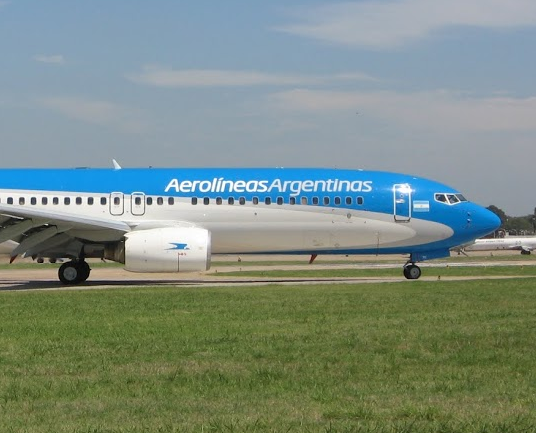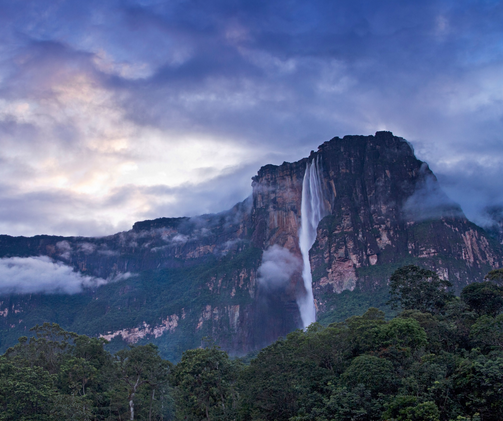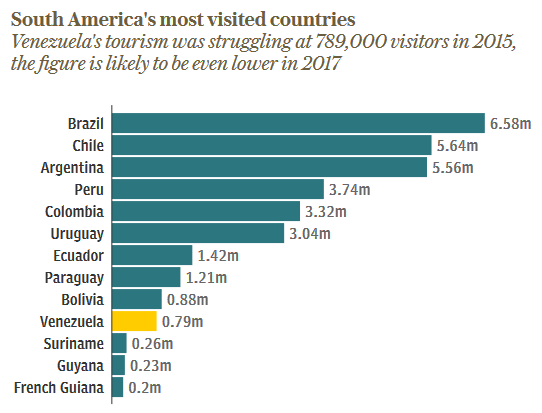Venezuela’s isolation continues to grow as another airlines ends flights to Caracas
By Hugh Morris
The deepening crisis in Venezuela is threatening to remove the South American nation from the travel map, with Argentine Airlines becoming the latest carrier to suspend flights to the country.

Argentine Airlines ends flights to Caracas.
The Argentinian airline joins a host of other major carriers, including the likes of United, Lufthansa and Air Canada, to withdraw from Caracas, the Venezuelan capital, amid concerns about security, political uncertainty and unpaid government contracts.
Iata, the international airlines association, said there are only “six or seven carriers” still running services to the country at a “very low flight frequency”. Vice-president Peter Cerda said: “Venezuela is becoming disconnected, it’s practically disconnected from the rest of the world, above all by air, and we can’t see any solution in the short term.”
What is happening in Venezuela?
The South American nation spent the summer barrelling deeper into crisis, amid daily street protests, violence and an economic collapse that has left some struggling to feed themselves. The country’s president, Nicolas Maduro, has received global condemnation for what appears to be a shift towards autocratic government. The country also suffers some of the world’s highest rates of violent crime – and an increasing sense of anarchy.
As instances of political violence grow, there are concerns that the nation might fall into civil war.
Airlines have cited security issues for years, with a wave of carriers abandoning Venezuela back in 2014.
What does the British Foreign Office say?
Don’t go. The Foreign Office (FCO) advised against all but essential travel to the entire country at the start of August, citing “ongoing unrest and instability”. It also urged anyone in the country to consider leaving and warned that the British embassy may be limited in its ability to provide assistance.
Since then it has updated its advice to warn of further issues, including travelers being asked to pay bribes, petrol shortages, and outbursts of violence. It warns against all travel to parts of the country along the border with Colombia, owing to the presence of drug traffickers and illegal armed groups.

The world’s highest waterfall, Angel Falls.
“The FCO advises against all but essential travel to the remaining areas of Venezuela, due to ongoing crime and instability,” its advice reads.
“If you’re in Venezuela, you should keep your departure options under review. If the political situation worsens, the British embassy may be limited in the assistance that it can provide.
“There have been regular large political demonstrations and protests in Caracas and other cities throughout 2017, which have led to arrests, injuries, and deaths.
“You should remain vigilant and informed. Avoid protests and demonstrations, which can turn violent with little warning. During and ahead of demonstrations, there’s often travel disruption as a result of road closures. The authorities often use tear gas and buckshot/plastic pellets to disperse protests. In case of renewed prolonged protests, you should take precautions by securing several days’ worth of food and water provisions.”
The FCO also warns of a high threat from violent crime and kidnapping throughout the country.
What does this mean for tourism?
Venezuela was already one of the least visited countries in South America before the crisis, welcoming just under a million visitors a year, but it has seen its arrivals fall since 2013. In 2015, 789,000 people visited the country; the figure for 2017 is likely to be much lower.
 “This is desperately sad for Venezuelans and we very much hope that the situation becomes calm and there is a peaceful resolution soon,” said Adam Calladine, group tours operation manager at Journey Latin America, which has had to redirect the trips it runs through Venezuela.
“This is desperately sad for Venezuelans and we very much hope that the situation becomes calm and there is a peaceful resolution soon,” said Adam Calladine, group tours operation manager at Journey Latin America, which has had to redirect the trips it runs through Venezuela.
“This is the first time in more than 37 years of business that the situation has been so volatile. Owing to the ongoing political situation in Venezuela we have revised our Coq of the Rock group tour itinerary, which included a two-day canoe trip to the Angel Falls, by removing all travel to Venezuela. Passengers will now be rerouted via Boa Vista in Brazil to access the next country on the itinerary, Guyana.”
The operator said it was taking bookings for its Coq of the Rock tour for next October in the hope that the situation will improve.
Some airlines are still operating into Caracas, including Air France, Turkish Airlines and Iberia, which as part of IAG can be booked on the British Airways website.
Venezuela is also set to lose much of its American tourism after the U.S. State Department warned against travel due to “social unrest, violent crime and pervasive food and medicine shortages”.
Bizarrely, however, Venezuela looks like it could benefit from a revitalised overseas market in Turkey. The two nations have this week signed an agreement looking to cooperate on air travel and tourism, among other areas.
Why do people go to Venezuela?
“The best-known attraction in Venezuela is probably the table-top tepuis of the Gran Sabana region in the east of the country, made famous as the ‘Lost World’ in the fiction of Arthur Conan Doyle,” says Telegraph Travel’s South America expert, Chris Moss.
“The flora and fauna of these mountains are distinct from those of the Amazon and Orinoco basins. The centrepiece of this area, close to the border with Guyana, is Angels Falls, which is reached by small prop plane and motorized canoe.”
Moss also highlights the nation’s 1,200 miles of Caribbean coastline.
__________________
Credit: The Telegraph, www.telegraph.co.uk




















